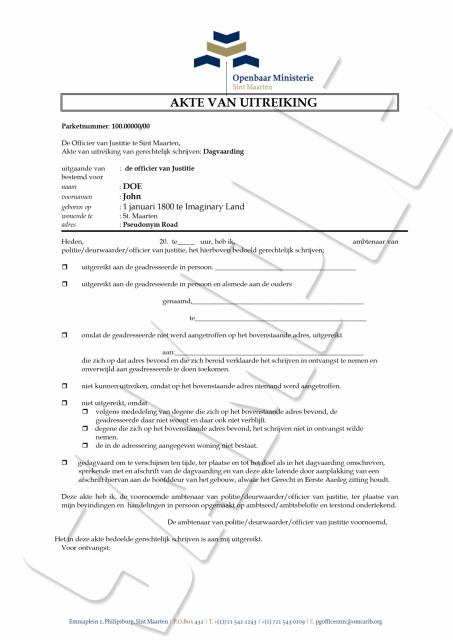Summons
When a case has been scheduled for hearing a summons is drafted and signed by the Public Prosecutor. Summons are generally issued in person by the bailiff or a police officer, and can be to a suspect and witnesses in a case.
The name and address of the person requested to appear before the court is printed on the summons, as well as the date and time of the hearing, and the charges being brought against the suspect. In addition to the name and address of the person being ordered to appear before the court, the summons includes the charges being brought against the suspect.
If the person addressed on the summons is in pretrial detention, or otherwise detained, the summons is issued at the place of detention. If the suspect is not in pretrial detention, then the summons is issued at the registered address at the Civil Registry. If the person cannot be found at the registered address, then the summons is issued at the address provided.
In the event that the suspect cannot be found or does not have a permanent place of residence, this information is filled in on the deed of issuance, which the Public Prosecutor then signs to acknowledge the fact that the summons could not be issued in person.
The signed deed of issuance can then be left behind at the registered address or sent via the postal services, or posted at the Court House.
